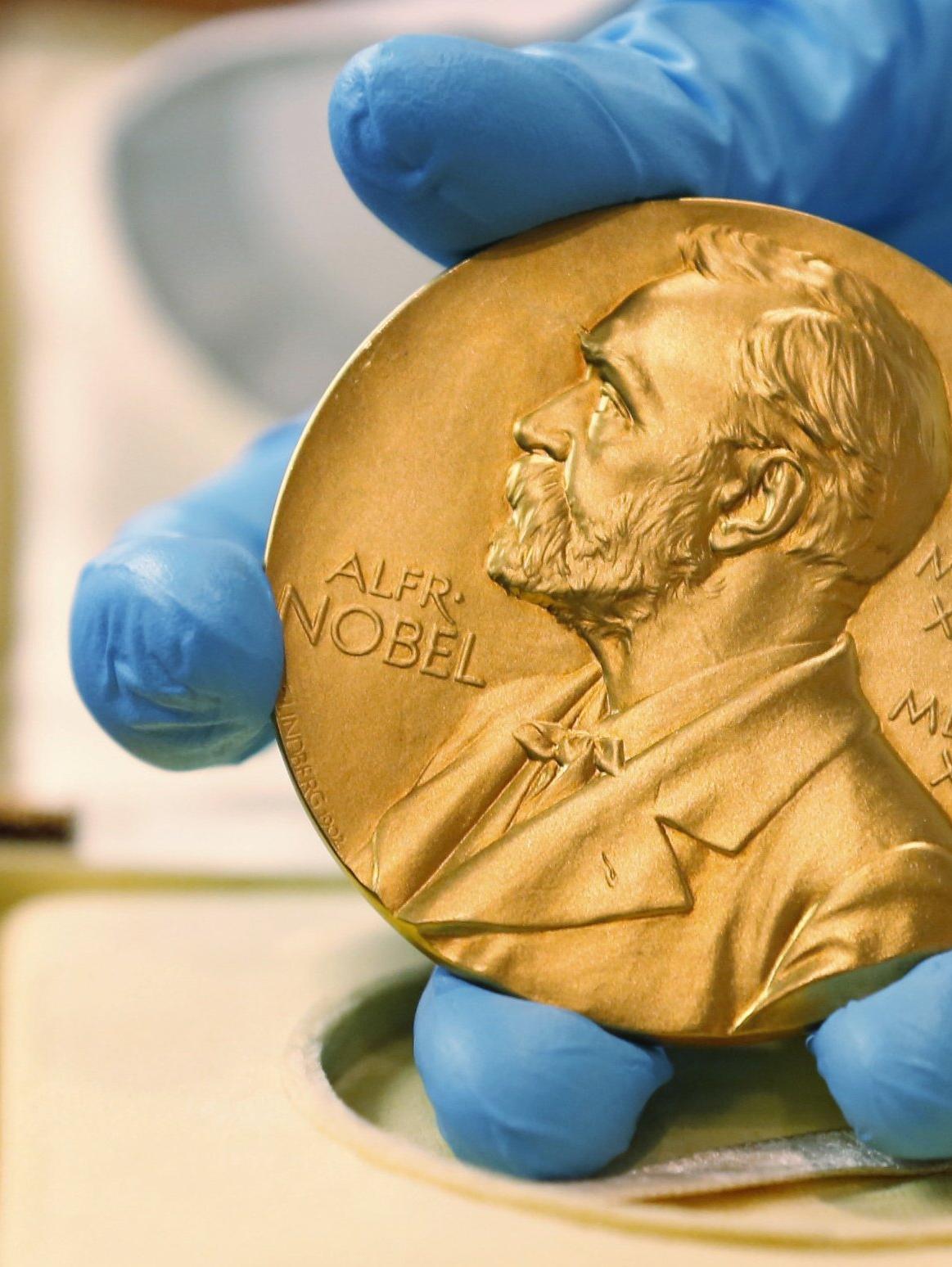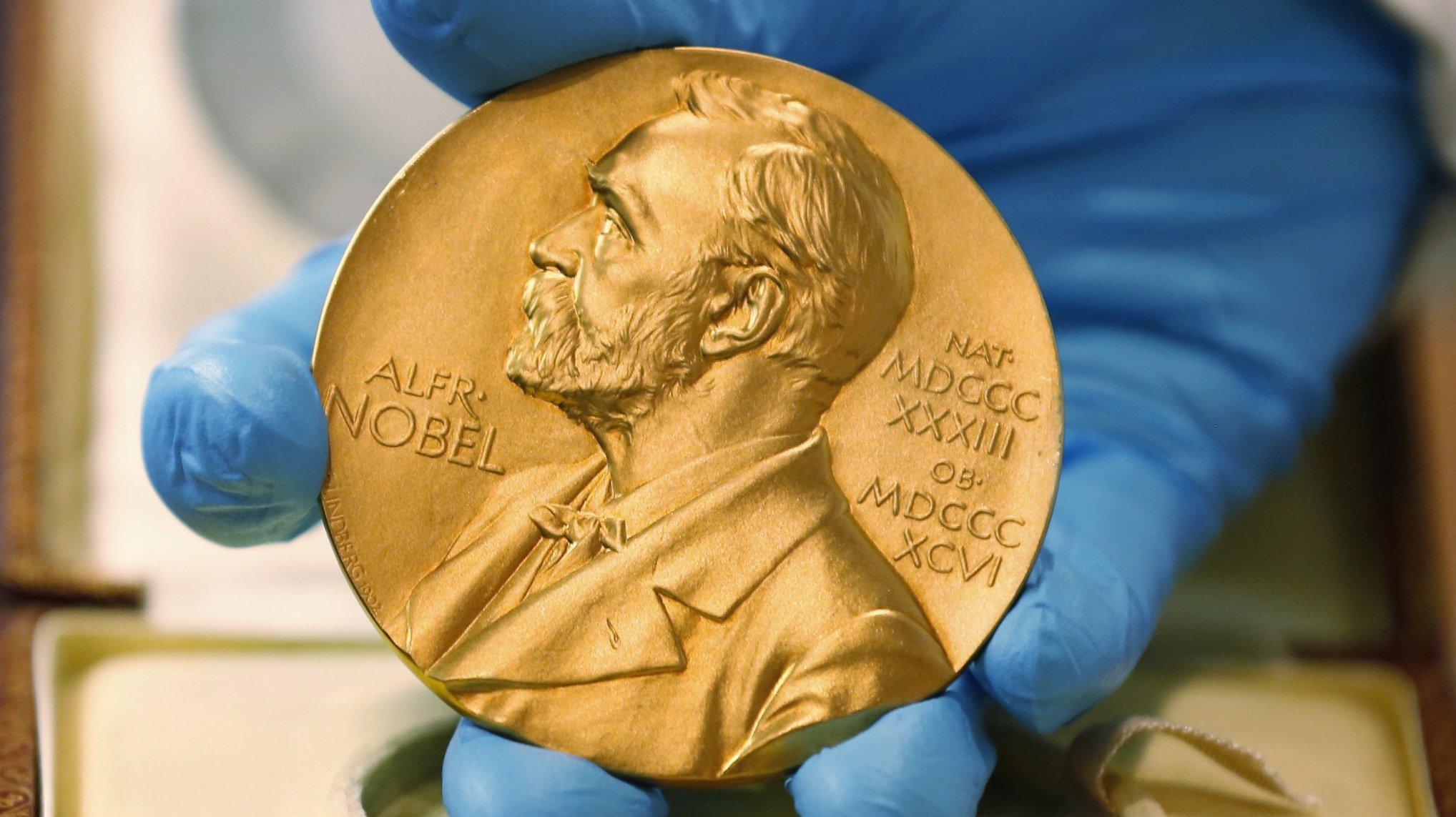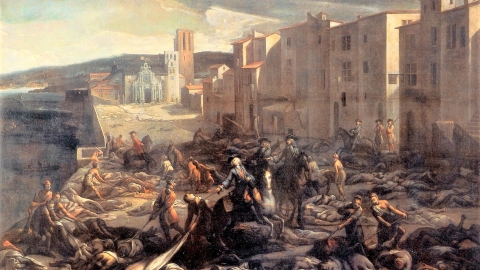1. The pace of vaccine development is unprecedented.
A vaccine against Covid-19 was developed, tested, and put into practice in less than a year—a speed unprecedented in the history of vaccine science. It can be said that scientists at Pfizer Inc. and its partners BioNTech SE, Moderna Inc., AstraZeneca Plc., and the University of Oxford, as well as China's Sinopharm Group, worked tirelessly to create a vaccine to protect the health of billions of people. Furthermore, Pfizer and Moderna's success in using mRNA—genetic material to transform the body's cells into vaccine-producing "factories"—offers hope for developing treatments for a range of other serious diseases, including cancer and heart disease.
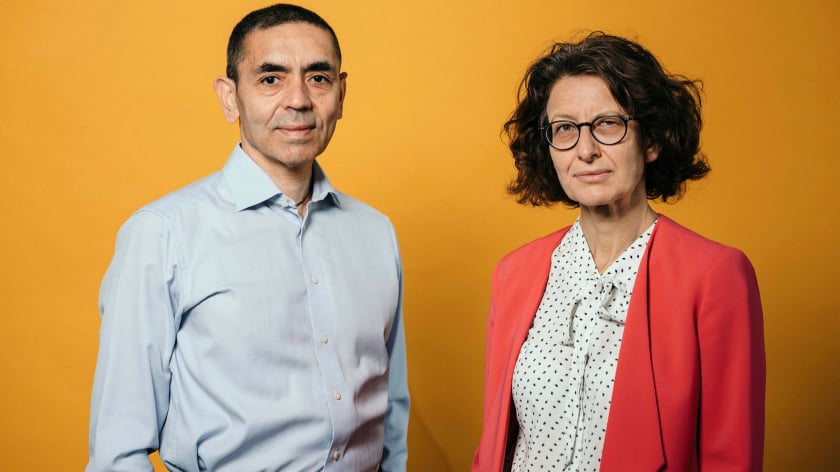
BioNTech CEO Ugur Sahin (left): "The chances of success for other vaccines are also increasing."
2. Experiment with Life 4.0 comprehensively.
Although things didn't start smoothly – with challenges like childcare at home, longer working hours, uneven access to technology or the internet, and the psychological stress of being stuck at home for so long – hundreds of millions of people managed to adapt and work and study remotely for almost a year, keeping banks, schools, government agencies, businesses, and even hospitals running smoothly for the past two years. This radical shift to the digital world also forced global humanity to rethink how work and life would change after the pandemic subsided, including flexible hours, less commuting or business travel, and more flexible work-life and family time in the new normal.

"Work from home" - the trend of working from home is popular these days.
3. Stimulating the economy with trillions of dong worldwide.
Unlike the response to the 2008 global financial crisis, a host of governments and central banks have proactively launched support packages for workers, providing subsidies to help the economy more than ever before: over $20 trillion in aid has been disbursed, and that figure continues to rise. In some developed economies like France and the UK, this has helped reduce unemployment rates and keep housing markets and businesses thriving. Optimists also view China's steady economic recovery as an indicator of the direction the rest of the world will take in the coming months.
4. Nature is healed.
The collapse of the tourism and manufacturing industries has created a series of major economic problems for many countries, but it has also provided a much-needed pause for the environment. Air pollution has decreased significantly, by as much as 65%, in some cities – if only considering the first few months of 2021. Turtles and whales have returned to the now-quiet beaches of Thailand, and pink dolphins have reappeared in the waters off Do Son in Vietnam, prompting many governments to consider closing nature reserves for a few months each year to fully preserve these beautiful ecological zones.

A dog enjoys a street devoid of tourists in Italy.
In Hong Kong, endangered pink dolphins have returned in larger numbers after ferry services for tourists declined. At the peak of lockdowns in April, the animals appeared on the streets in Spain, Chile, and the United Arab Emirates, demonstrating how quickly ecosystems can recover when human presence diminishes.
5. The clean energy revolution
The demand for crude oil has plummeted since the emergence of Covid-19, prompting a shift in global thinking about how the world's energy supply should be managed. Some experts believe the era of crude oil is over. Several grid operators are shifting to less expensive renewable energy sources such as wind and solar.
In 2020 and 2021, sales of Tesla (a super-affordable electric car model) surged, one of many manifestations of the success of the global revolution shifting from raw materials to clean energy sources.
6. The whole world will eventuallygreenreturn
After witnessing nature's miraculous recovery amidst the Covid-19 pandemic, China, the world's leading polluter, has declared it will cut its carbon emissions to zero by 2060, prompting Japan and South Korea to make similar commitments.
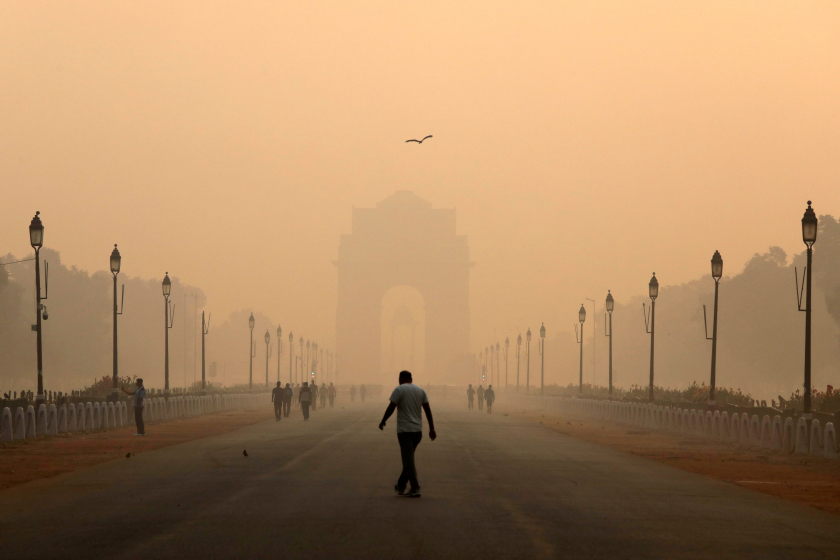
India, one of the most polluted countries in the world, launched the National Clean Air Programme 2019 to address pollution.
Dozens of cities, states, and countries have set targets to phase out new fossil fuel car sales. Major US banks have pledged to stop financing oil and gas exploration projects in the Arctic. Even BlackRock, the world's largest asset manager, has said it will place climate change at the heart of its investment strategy. Time will tell whether all these initiatives will lead to lasting change, but it is clear that this is one of humanity's most significant milestones in its journey to help the Earth.greenreturn.
7. Does technology connect all of humanity?
Imagine a stifling life during lockdowns, but without the technology to keep us connected. That would be terrible. During the Covid-19 pandemic, generations (from young to old) honed their home cooking skills and shared them on platforms like Instagram, Facebook, YouTube, and TikTok. Internet users embarked on virtual adventures or gathered on a tropical island in the multiplayer game "Animal Crossing," or shared mixed emotions with popular TV series. While people stayed indoors, drones and autonomous robots were deployed to deliver emergency medical supplies, groceries, and relief goods to millions.

TikTok!
8. Millions of new scientific discoveries have been published.
This year, it wasn't just vaccines that caused excitement in the scientific community. Researchers found an antibiotic that could treat both acne in humans and fungal infections in koalas. Archaeologists uncovered evidence of prehistoric rainforests in Antarctica, and a massive 2,500-year-old Egyptian tomb containing mummies and treasure. Biologists discovered how to use algorithms to address the possibility of disease invading cells, and even NASA astrophysicists found signs of life in acid-laden clouds as far away as… Venus.
9. Nobel, Peace, and Humanity
Recently, journalists Maria Ressa and Dmitri A. Muratov were awarded the Nobel Peace Prize for their "courage in fighting for freedom of speech in the Philippines and Russia." Ressa, with her work combating misinformation, has always been a thorn in the side of members of the party supporting President Rodrigo Duterte – the authoritarian president of the Philippines. Muratov, meanwhile, has defended freedom of speech in Russia for decades, working under extremely difficult conditions.
The awarding of the prestigious Nobel Prize to the two journalists also symbolizes the actions that the Nobel Committee has been taking since April of this year: every Friday, they release a white dove named "Good News of the Week" from the Nobel Committee headquarters.
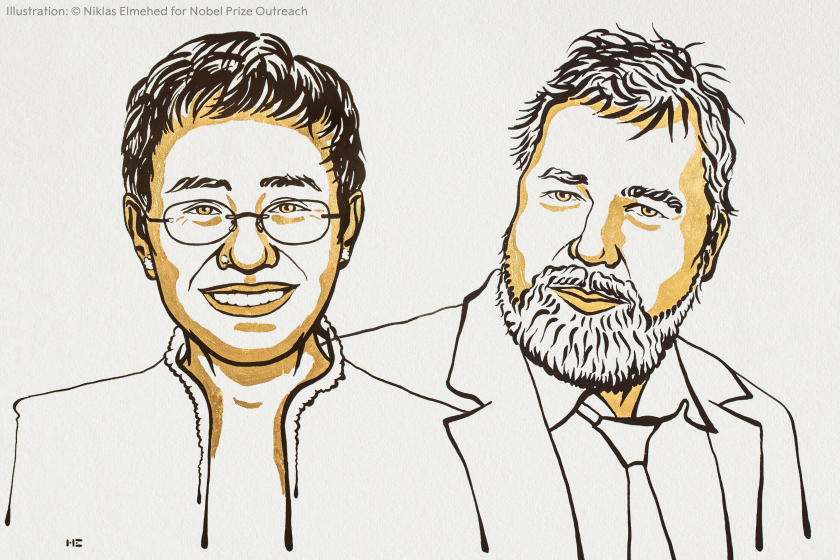
Illustration depicting the two journalists who won the 2021 Nobel Peace Prize.
This year, the Nobel Committee also awarded the first Nobel Prize in Economics for a large group. The laureates – David Card, Joshua Angrist, and Guido Imbens – provide us with new insights into the labor market and point to conclusions about what they can draw about it.cause and effectThese findings can be derived from natural experiments. Their approach has spread to other fields and revolutionized experimental research.
Many of the big questions in social science relate to cause and effect.How does immigration affect wages and employment? How does longer education affect an individual's future income?These questions are difficult to answer, as we have no basis for comparison. However, this year's Nobel laureate in Economics has shown that these and similar questions can be answered using natural experiments.
The key is to use scenarios in which random events, or policy changes, lead to different treatment outcomes for different groups of people, much like clinical trials in medicine. Using a natural experiment, David Card analyzed the labor market impacts of minimum wage, immigration, and education. His research, dating back to the early 1990s, challenged conventional wisdom, leading to new analyses and additional insights into seemingly fundamental issues of human society. The results showed that raising the minimum wage does not necessarily lead to fewer jobs. We now know that the incomes of those born in a country may benefit from new immigration, while those who immigrated earlier risk being negatively impacted.
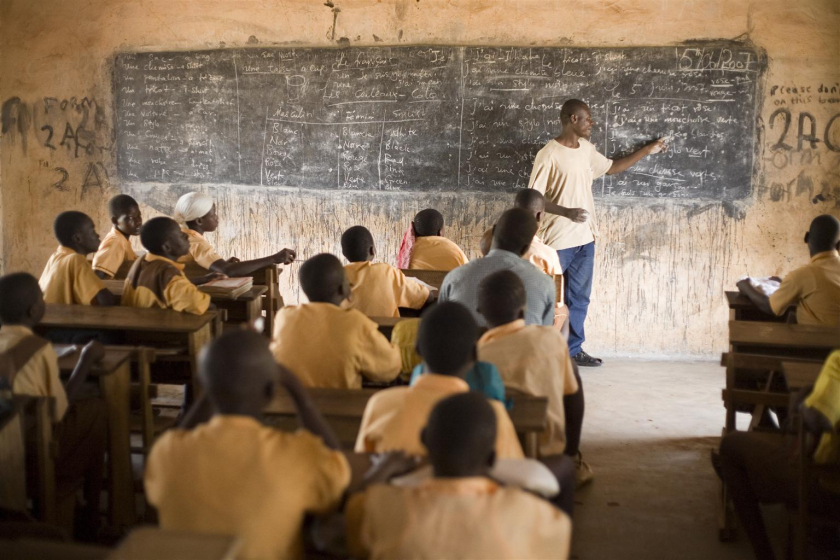
Students attend a French language class at a school in Ghana.
From Card's research, lawmakers also realized that resources within schools are far more important to students' future success in the labor market than previously thought. This opens up a whole new realm of research and new avenues for countries seeking to escape poverty, and for low-income workers around the world.

 VI
VI EN
EN



